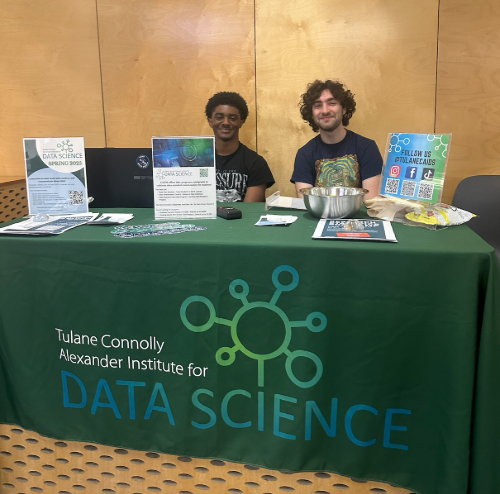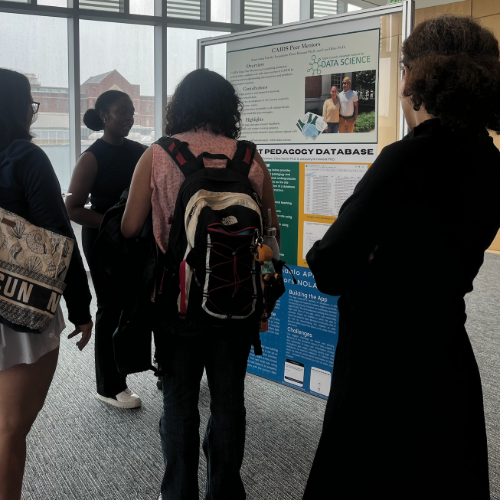Supporting a culture of data literacy
Connolly Alexander Institute for Data Science
ABOUT CAIDS
The Connolly Alexander Institute for Data Science (CAIDS) supports a culture of data literacy at Tulane University, inviting faculty and students at every academic level and within all fields to participate in a series of data-centric programming.
At CAIDS, we are dedicated to creating, fostering, and supporting a comprehensive and inclusive culture of data literacy. Through classroom, co-curricular, short-form, and public programming, our mission is to equip members of the Tulane community with the ability to read, work with, analyze, and communicate about data.
To support our mission, we uphold the following values:
- Inclusivity: We encourage all communities to learn data literacy skills, promote data literacy across campus, and value all forms and functions of data work.
- Accessibility: We actively work to make data literacy available and approachable for everyone at Tulane University.
- Social Responsibility: We use data literacy principles to promote the social and common good and teach the use of responsible and ethical data practices.
- Community: We work to build equity-minded and interdisciplinary data communities through collaboration, collegiality, and cooperative learning.
- Innovation: We empower the Tulane community to cultivate curiosity, reflect on and solve problems, challenge assumptions, develop change, and experiment with new ideas in their data research and data pedagogies.
Create a Culture of Data Literacy
We promote data and AI literacy across Tulane through coursework, student support, co-curricular programming, and other learning opportunities for every discipline. We define data broadly to include and support the use of data in all disciplines, and we define data literacy as the ability to read, work with, analyze, and communicate about data.
Our work in this area includes:
- Curriculum & Educational Services: Interdisciplinary DATA courses introduce data literacy, visualization, analytics, AI, and machine learning. Outside the classroom, students receive support from Data Peer Mentors, the Statistical Consulting Center, and workshops.
- Career Readiness & Student Leadership: Internships, research opportunities, and professional development events help students build data and AI skills, expand portfolios, and prepare to succeed in a data-driven job market. Students contribute to an accessible and inclusive data culture as Data Ambassadors, Data Lab Managers, peer mentors, interns, and graduate assistants.
- Outreach & Community Engagement: We connect data-minded students, faculty, staff, and community partners through LOVE Data Week, data events and competitions, the Data Showcase, student organizations, and community-engaged internships and research.
Catalyze New and Collaborative Data & AI Research(ers)
We aid faculty and students conducting data- and AI-focused research by:
- Supporting New Data & AI Projects: We provide resources such as seed grants and research assistants. Students engage through paid internships, research assistantships, service learning, and research-focused courses.
- Democratizing and Broadening Data Science: We reduce barriers so researchers across disciplines and career stages can participate in data and AI research.
- Sparking Collaboration: We foster interdisciplinary, transdisciplinary, community-engaged, and cross-unit collaborations in data and AI.
LEARN MORE
STAY UP-TO-DATE
Events at CAIDS
Latest News & Posts
Contact Us
Phone: (504) 862-8381
Email: caids@tulane.edu
Address: Connolly Alexander Institute for Data Science
Howard-Tilton Memorial Library, Room B23
Tulane University
New Orleans, LA 70118
Follow Us
Join Our Newsletter
Instagram: @tulanecaids
LinkedIn



